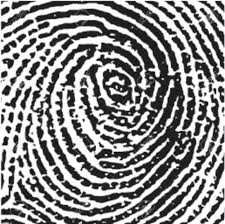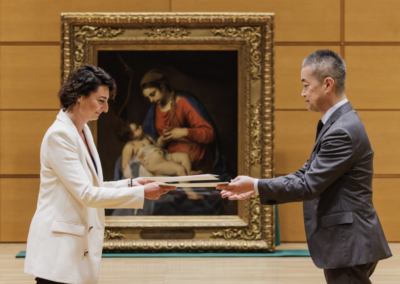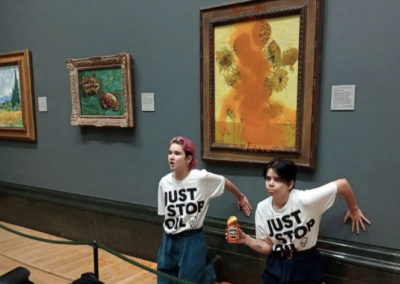The Amelia Conference:
ARCA’s 15th Annual Interdisciplinary Art Crime Conference
Call For Presenters
Conference Dates – June 20-22, 2025
Location – Collegio Boccarini Conference Hall, adjacent to the Museo Civico Archeologico e Pinacoteca Edilberto Rosa, Amelia, Italy
Abstract Submission Period – January 01, 2025 through March 30, 2025
Held in the beautiful town of Amelia, Italy, the seat of ARCA’s summer-long Postgraduate Certificate Programmes in Art Crime and Cultural Heritage Protection. The Association’s 15th annual conference begins on Friday, June 20, 2025 with a networking cocktail open to all Amelia Conference attendees and speakers. At the heart of the conference are two days devoted to presentations selected through this Call to be held in the Collegio Boccarini Conference Hall, on Saturday and Sunday, June 21 and June 22, 2025.
ARCA’s annual Amelia Conference serves as an arena for intellectual and professional exchange and highlights the nonprofit’s mission to facilitate a critical appraisal of the need for protection of art and heritage worldwide. Over the course of one weekend each summer, this art crime-focused event serves as a forum to explore the indispensable role of detection, crime prevention, and scholarly and criminal justice responses, at both the international and domestic level, in combatting all forms of crime related to art and the illicit trafficking of cultural property.
Geared towards international organisations, national enforcement agencies, academics, cultural institutions, and private sector professionals in the art and antiquities fields, the Amelia Conference follows a long-established commitment by the Association to examine contemporary issues of common concern in an open, non-combative, multi-disciplinary format in order to promote greater awareness and understanding of the need for better protection of the world’s cultural patrimony.
2025 Call for Presenters: Session Formats and Topics
Given the success of the Amelia Conference over the past 14 years, it is important to recognise the growing interdisciplinary and international nature of this emerging field, the growing complexity of art and heritage crime, and the disciplines and subject matter experts who follow along and contribute within their areas of speciality. With that in mind, this year’s conference will build upon topic-specific sessions designed to stimulate discussion and share learning on a series of topics of common concern. Some conference panels may feature more active panel debate about a session topic, or present various and/or contrasting perspectives about a topic. Each panel session will last approximately 75 or 90 minutes and will include a number of oral presentations with some time dedicated for interactive discussion.
ARCA welcomes presentation proposals related to the conference’s theme from individuals in relevant fields, including law, policing, security, art history, art authentication, archaeology, or the allied art market.
Presenters with topics related to the following areas are particularly encouraged to submit a speaking proposal for this upcoming conference, highlighting important issues of common concern:
The Global Landscape of Art and Antiquities Crime: Trends and Challenges
Exploring the current state of art crime, including emerging trends, transnational issues, and new technologies in detection and prevention.
The Intersection of Art Crime and Organised Crime Networks
Examining how organised crime groups can be involved in art trafficking, antiquities smuggling, and illicit trade, with case studies from recent investigations.
Money Laundering in the Contemporary Art Market: A Legal and Ethical Challenge
Exploring how the contemporary art market is vulnerable to money laundering, and the role of financial institutions, galleries, and auction houses in combatting illicit financial flows.
Illicit Antiquities and the Destruction and Theft of Cultural Heritage in Conflict Zones
Focusing on how war and political instability fuel the theft and plunder of cultural heritage, and the role of international actors in prevention and recovery.
Provenance Research and Repatriation: Navigating Legal and Ethical Complexities
Addressing the ethical, legal, and logistical challenges involved in tracing the provenance of looted artworks and facilitating the repatriation of stolen cultural property.
Art Fraud and Forgery: Innovations in Detection
A look at modern techniques, including scientific analysis and digital tools, to identify and prevent art forgery, and the evolving nature of art fraud in today’s market.
The Changing Role of Museums and Institutions in Response to Problematic Art and Antiquities in Their Collections
Discussing the responsibilities and challenges faced by museums, galleries, and private collectors in safeguarding collections and ensuring ethical acquisitions.
IA, Block Chain and Digital Solutions in Art Crime Detection and Prevention: Do they work?
Exploring the use of blockchain, artificial intelligence, and other digital tools in verifying authenticity, tracking ownership, and preventing illicit transactions in the art world. Are they simply interesting prototypes but are they scalable beyond the laboratory environment
The Role of Law Enforcement and International Cooperation in Art Crime Investigations
Highlighting collaborative efforts among law enforcement agencies, INTERPOL, and cultural institutions to investigate, recover, and prosecute art crime cases.
Cultural Diplomacy and the Politics of Art Repatriation
Examining the role of cultural diplomacy and the geopolitical implications of art repatriation claims, and how international relations shape the return of stolen cultural heritage.
This mix of topics offers both a broad overview and deep dives into the various aspects of art and antiquities crime, highlighting key intersections with organized crime, financial systems, and legal frameworks.
Resolving art disputes in and outside of the courtroom
This panel will explore the various legal, ethical, and practical approaches to resolving disputes over art and cultural property, both through formal litigation and alternative methods.
Each selected presenter will represent a coherent and clearly focused presentation of 15 to 20 minutes maximum on a topic of common concern, that combined with presentations given by co-panelists, are designed to provide significant insights into the topic or theme and to stimulate thoughtful, not combative or antagonistic, discourse.
We very much look forward to receiving presentation proposals on the aforementioned or alternative art and antiquities crime topics, noting that panels may change or be altered based on speaker availability.
Abstract and CV Submission Deadline
March 30, 2025
Abstract Word Limit
400 words, excluding abstract title, presenter/co-presenter names and affiliations
Abstract Selection Process
Each submitted abstract must be accompanied by a CV. The abstract review process will be conducted blind, i.e. all author names will be removed before the abstract before being sent out for peer review. The abstract itself will be reviewed and scored by independent reviewers who have expertise in the specific session’s identified subject area.
Peer Reviewers apply the following criteria to judge abstract submissions
I. Quality and Originality (1 to 5)
Abstracts containing significant new findings or presenting concretised information or new approaches will be given higher scores than those that merely serve as a chronology of, or modifications to, older findings or routine topics of discord.
II. Importance (1 to 5 pts)
This criterion addresses the importance of the presentation or research in terms of covering new ground and in advancing knowledge in the art crime and cultural heritage protection field.
III. Presentation (1 to 5 pts) This criterion addresses how well the specific research question(s) and objectives, methods used, primary results, facts ascertained, etc., are explained, rather than simply titling the topical subject itself. A clearly written abstract follows a logical order (e.g. aims, methods, outcome of investigation or analysis).
FINAL NOTE
All accepted participants are responsible for their own travel and accommodation expenses, however, accepted conference presenters will have their conference fees waived and will be invited to be ARCA’s guest for the Amelia Conference icebreaker cocktail on 20 June 2025.
For further information about the 2025 Amelia Conference or to submit an abstract, please write to us at:
❦❧❦❧❦❧❦❧❦❧❦❧




